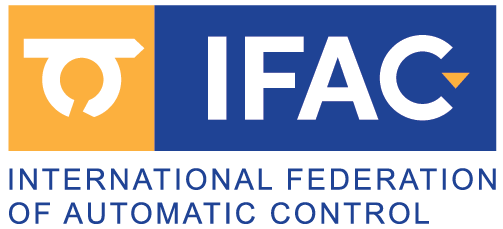The number of open invited tracks increased again. Reaches 23. Here are the latest 3 submitted ones.
Linear Parameter Varying Systems: modelling, analysis, observation, control, diagnosis and applications
Control and Supervision of water systems
Nonlinear System Identification Benchmarks
Title: Linear Parameter Varying Systems: modelling, analysis, observation, control, diagnosis and applications
Track proposed by: Roland Tóth, Olivier Sename
Abstract: Linear Parameter Varying systems have state space representations that depend on time-varying parameters. This class of systems allows representing several types of systems such as non-linear systems, switching systems, multi-models… This track aims at presenting recent results in the field of LPV systems and applications. The topics will cover several areas concerning LPV systems: modelling, analysis, observation, control and diagnosis. Some of the important keywords include:
- Modelling and Identification of LPV systems How to obtain LPV systems from: nonlinear systems, switching systems, time-delay systems, sampled-data systems, systems with saturation, uncertain systems, polynomial systems…
- Model reduction for LPV systems
- Analysis of LPV systems: stability and stabilization, robustness issues, geometric approaches, structural analysis
- Observation, Control of LPV systems: Observer design, Hinf control, optimal control, Model Predictive Control, virtual reference feedback tuning…
- Fault Diagnosis and Fault-tolerant control of LPV systems: fault detection, fault estimation, fault tolerant control ...
- Applications Automotive, aerospace, robotics, chemical processes, biological systems, energy and nuclear, network controlled-systems...
Code for submitting contributions: biii1
Title: Control and Supervision of water systems
Track proposed by: L. Lefevre, J. M. Maestre, C. Ocampo-Martinez, E. Duviella
Abstract: Water systems are in the center of Human societies. Water resource is used for drinking water, irrigation, industry, transport. It has to be valorized after its use thanks to waste treatment systems. In several parts of the world, the management of water systems will be impacted by climate change. The scarcity and the precious value of water will be increased in a close future. Hence, the efficient management of water systems is still an ongoing challenge for the Automatic Control community. Whatever is the considered water system (irrigation canals, inland navigation networks, drinking water networks, sewage systems…), it is still necessary to improve existing models (predictive model, model dealing with uncertainties), monitoring schemes, control algorithms, supervision techniques (detection and isolation of faults, quality), prognostic methods (forecasting of future states), management strategies dealing with several and often inconsistent objectives. The design of efficient water management strategies can gather multidisciplinary activities with researchers from computer sciences (machine learning, Artificial Intelligence) and control theory. This track offers the opportunity to exchange ideas and interact between researchers and water managers. Topics of the track include but are not limited to:
- Modeling of large-scale systems (physical-based or data-based models),
- Robust/Adaptive control,
- Model predictive control,
- Centralized or decentralized/distributed control,
- Nonlinear control,
- Fault detection and isolation,
- Prognosis,
- Optimization approaches,
- Hierarchical management/control schemes,
- …
Code for submitting contributions: 91w85
Title: Nonlinear System Identification Benchmarks
Track proposed by: M. Schoukens, J-P. Noël
Abstract: This open invited track is structured around three benchmark systems featuring state-of-the-art challenges in nonlinear system identification, namely dynamic nonlinearity, process noise, and short data record. They are a Bouc-Wen hysteretic system, a Wiener-Hammerstein system with process noise, and a cascaded tanks setup, respectively. The invited track website functions as a platform providing detailed information regarding the three benchmark problems, and making available numerical and experimental data sets together with identification and validation guidelines. The invited track follows the success of the Workshop on Nonlinear System Identification Benchmarks organised in Brussels, April 25-27, 2016, on the same subject. Solicited contributions should describe solutions to one or several of these benchmark problems. In particular, comparative overviews of methods would be particularly appreciated. The objective of this invited track is to advance the current knowledge in nonlinear system identification by encouraging the exchange of ideas and the establishment of formal collaborations between the systems and control, mechanical and machine learning communities. These three communities have developed over the years various and numerous nonlinear modeling approaches driven by the different backgrounds, constraints and end-uses. Moreover, they generally focus on different aspects of the modeling problem as they face different limiting factors in terms of model quality and identification cost. This is why we believe that, by promoting interaction through the benchmark setups, significant benefit can be mutually gained.
Web site: http://homepages.vub.ac.be/mschouke/IFAC2017_BenchmarkTrack.html
Code for submitting contributions: u5979






























